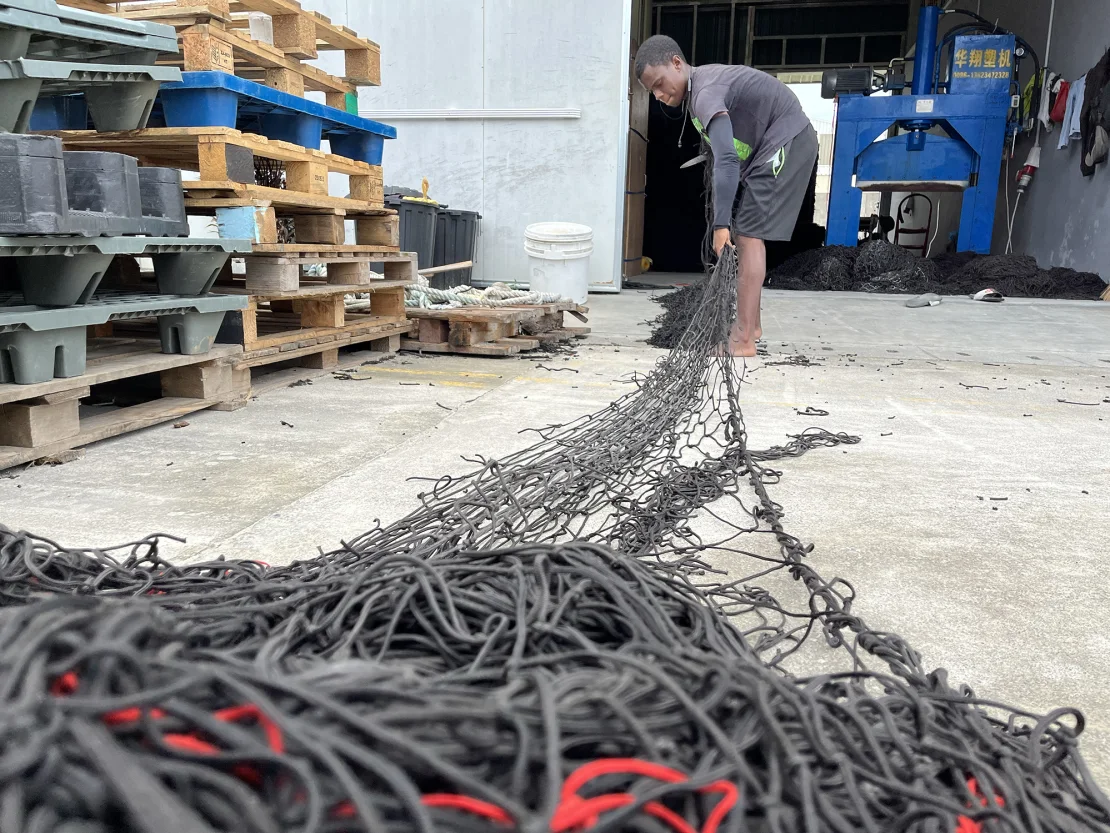How old fishing nets could be part of the climate crisis solution.

How old fishing nets could be part of the climate crisis solution.
Patagonia’s Kyle de Bouter displays a pair of board shorts made from recycled fishing nets, smiling as workers slice nylon nets into seven-foot square, one-ton bales nearby.
In his company, Brikole, De Bouter recycles discarded nets from the industrial tuna fishing industry. Seeing the nets piling up at the main port in this capital city, he realized that recycling the discarded products would allow him to make a living, while also reducing waste and creating jobs. In his dreams, Seychellois would convert the nets into bags, hammocks, and board shorts.
The United Nations and others are reaching some success in pushing large companies from developed countries toward sustainability goals, but small and medium businesses in developing countries are often overlooked. Researchers note that small businesses account for 90% or more of commercial activity and employ the majority of workers, but are less engaged in sustainability. In 2018, 9.1% of used materials were cycled back into the global economy, according to the United Nations.
In spite of a small, simple business, Bouter wanted to create as much economic activity as possible for the Seychelles.
Located in the Indian Ocean, Seychelles boasts 1.3 million square kilometers of marine territory surrounding its 115 islands. Leaders and institutions in the Seychelles are constantly looking for ways to counteract climate change in order to foster development on their islands and to counteract environmental degradation. Because this area is prime for fishing, particularly tuna fishing, many people in Seychelles believe that these industries would make a good starting point for the country.
When his seemingly simple project hit operational roadblocks, government ministers, the fishing industry, and the port authority supported him.
